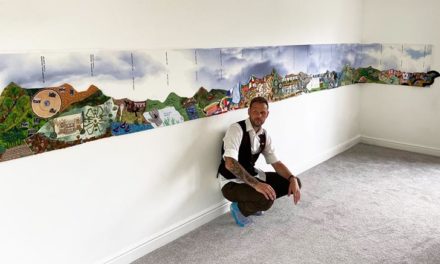Nothing’s “wrong” with the women — what’s wrong is the system that was built around a 1980s workforce and is still pretending 50+ women don’t exist.
Let’s spell it out.
1. Ageism is now baked into “modern” hiring
A lot of companies say “we value experience,” but what they really mean is “we want 25-year-olds with 10 years’ experience.” HR filters by graduation year, LinkedIn age signals, “cultural fit,” “digital native.” All of those are polite ways of saying: young, cheap, fast.
Then add menopause into the media narrative. Menopause is talked about like a permanent performance problem instead of a temporary transition. So a 55-year-old woman who has worked with the car industry and hotels across the globe this is my challenge.
- raised kids
- run a house
- maybe run a business
- supported a partner’s career
- managed crises
…is suddenly described as “slow,” “tired,” “set in her ways.” It’s nonsense. Most of these women have done operations, logistics, negotiation, emotional labour and PR — just not under corporate job titles.

2. The “online work” promise is oversold
You see it everywhere: “Just work remotely!” “Do social media!” “Become a VA!” Then a woman in New Zealand tries for 7 months, finally gets a client… and the client dumps her for a cheaper team in India. That’s not her failure — that’s global labour arbitrage. Platforms make it sound easy, but the internet is now one big race to the bottom on price.
Same story in Portugal, Sweden, Australia: governments say “retrain, upskill, be flexible”, but they don’t say that the marketplace is flooded with 22-year-olds happy to do it for €8–10/hour and no children to feed.
3. Governments are pushing retirement out — while companies are pushing seniors out
UK, France, Australia — retirement ages moving up. “Work longer,” they say. But the labour market says, “Not here.” So women 50–60 are stuck in a gap:
- Too young to retire.
- Too old for HR.
- Too experienced to start at minimum wage.
- Too expensive (on paper) compared to a graduate.
That’s the limbo. It’s not personal failure. It’s policy + bias.
4. “Health risk” is the lazy excuse
In Germany, Croatia, even corporate Australia: “Seniors are too expensive,” “more sick leave,” “not as agile.” But what’s the reality? Plenty of 28-year-olds are burnt out, anxious, and off work with stress. Meanwhile a 55-year-old woman who has managed three kids, ageing parents and a side business shows up every day. The real issue isn’t health — it’s payroll and image. Companies want to look young, TikTok-able, hyper-digital. Your grey hair doesn’t match the brand deck.

5. Media supports the bias
Media keeps showing two types of older women:
- The glamorous, ageless 60-year-old with money — “See? Age is just a number.”
- The invisible carer/granny role.
It rarely shows the 53-year-old looking for a job who gets told in an interview, like the Croatian woman you mentioned, “we only hire young people.” That’s direct discrimination. And yes, even in EU countries where it’s illegal, it still happens — quietly.
6. Why we actually need 50+ women at work
This bit is always missing. We talk about “diversity,” but age diversity is ignored. What do older women bring?
- Social skills: mediating team tensions, reading the room, calming anxious juniors.
- Nurturing anxious girls: and we have a whole generation of girls with anxiety, body image issues, social media pressure. Who is better to coach them than women who’ve lived through hard stuff?
- Long-memory of the industry: what was tried in 2009, what didn’t work, who can be trusted.
- Stability: 50+ women aren’t job-hopping every 9 months.
This is workplace gold. But companies don’t know how to price it.
So what are the solutions?
Let’s be blunt: “Just get a job” isn’t working. “Just accept anything” is survival, not dignity. We need a mix of personal strategy + structural change.
A. Micro-business over “start-up”
Many women over 50 hear “create your own business” and think they need a brand, a logo, a funnel, a big launch. No. Think micro-business:
- 1–2 paid services
- 3–5 good clients
- clear outcome
- low overheads
- sold through your network, not ads
Examples:
- 50+ workplace coach for younger women
- onboarding/on-ramping specialist for SMEs (you teach them how to keep women returning from maternity/menopause)
- local concierge / relocation support for expats
- specialist editor for non-native English founders
- online accountability groups for anxious teens (paid by parents)
These are all things a 25-year-old cannot do as well, because they don’t have the lived authority.
B. Package the experience
Women in their 50s often undersell because so much of their skill wasn’t done under a job title.
Take this list:
- ran PTA → stakeholder management
- raised 3 kids → project management + conflict resolution
- cared for parents → healthcare navigation + admin
- supported husband’s business → ops + accounts + client service
- kept a house running in 2–3 countries → logistics + budgeting
Turn it into a services CV not just a “job CV.” Companies hiring freelancers don’t care how old you are if you present a clean outcome: “I will audit your customer support workflow and reduce tickets by 20%.”
C. Go where age is an asset
Not every sector is obsessed with youth. Look at:
- Elder care / senior services (families like dealing with someone their parents will trust)
- Education support, especially for girls with anxiety
- Cultural mediation / relocation (women who’ve moved countries 2–3 times are excellent at this)
- Luxury / hospitality reviews (older women have spending power and authority — that’s your world already)
- Governance / HOA / condo / community management (lots of mess, needs maturity)
These don’t want a 21-year-old influencer. They want someone steady.
D. Work in “fractions”
One woman you mentioned said she does fractional advisory to tech. That’s smart. Instead of chasing one full-time job, sell 1–2 days a month to four companies:
- onboarding & HR culture for a startup
- customer success playbook
- “women in tech” retention mentor
- process cleanup
That way, if one drops you, you don’t lose 100% of your income.
E. Women-for-women hiring networks
This is underused. 50+ women should be hiring each other. You don’t need to wait for a big platform. A simple WhatsApp / Slack / Facebook group by country: “Women 45+ work circle – Portugal / Sweden / NZ.” Rule: no ageism, no €5/hour jobs, no “exposure.” If companies won’t build this, we do.
F. Call out the hypocrisy
We should keep naming it: governments can’t force people to work till 67 and then allow companies to exclude them at 52. That’s robbery. Either:
- protect older workers properly, or
- lower pension age
But this current “work longer, but we won’t hire you” is what’s breaking women.
G. Menopause-friendly workplaces
This isn’t fluffy. Simple accommodations (flexible hours, remote days, temperature control, no performance shaming) keep experienced women in. UK, Germany, Sweden — all say they want productivity. Well, keep the productive women you already have.
The harder truth
Some women online are right: accept the reality. The market is ageist right now. So while we fight it, we still have to earn. That might mean:
- taking a “lower-status” job short term
- doing 2–3 income streams (micro-business + part-time + online classes)
- renting out a room / digital product / small workshop
- teaching your actual superpower (confidence, anxiety calming, parenting, navigating divorce, grief, migration)
That’s not failure. That’s strategy.
Join the debate
If you’re 50+ and reading this thinking, “That’s me,” add your country and your story. We’re seeing the same pattern in:
- New Zealand
- Sweden
- Portugal
- Germany
- UK
- France
- Australia
- Turkey
- Croatia
That’s not “you didn’t try hard enough.”
That’s a global, gendered, ageist labour market problem.
So tell us:
- Where are you?
- What did you try (job, online, business)?
- Where did ageism show up?
- What skill do you have that a 25-year-old can’t fake?
The more of these we collect, the harder it becomes for media and politicians to keep pretending “women just need to upskill.”
Because here’s the truth: women over fifty already upskilled. The economy didn’t.
















You must be logged in to post a comment.